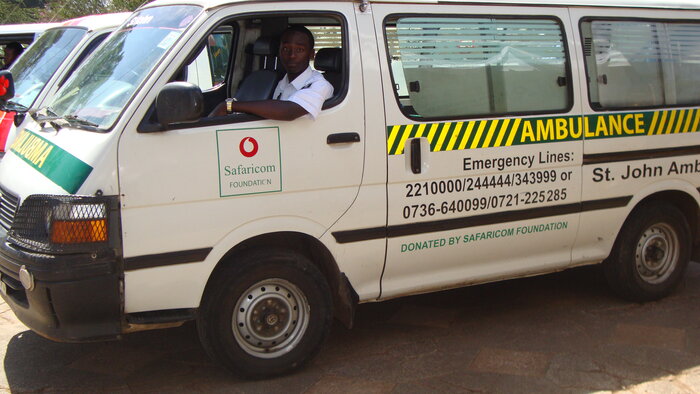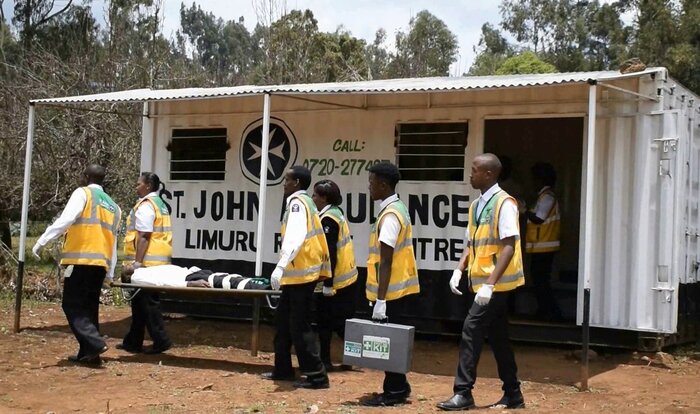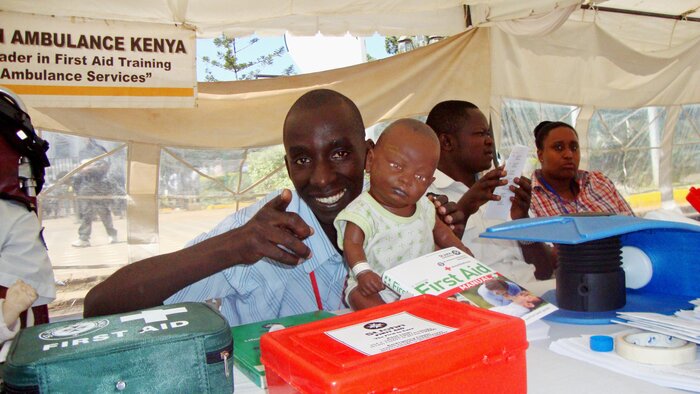Kenya is facing an increasing number of natural disasters. First responders play an essential role afterwards. They are the first on the spot and provide the necessary aid. To enable them to respond better and more robust to disasters in the future, Johanniter International Assistance has started a new project together with three regional partners.
How do I help injured people after accidents? Am I doing something wrong? Am I allowed to help at all? Everyone knows these difficult questions. Regular first aid courses can help to answer them. In Kenya, however, many aid organisations and first responders face major challenges. Throughout the country, there are no formal training facilities for firefighters, for example. Refresher courses for disaster relief actors are limited. As a result, inadequate equipment and lack of knowledge among first responders lead to avoidable deaths, for example in road accidents.

Limited financial resources for rescue measures
Organisations in emergency services do not have enough qualified personnel to respond quickly to disasters. There is also a lack of ambulances and fire trucks equipped with life-saving equipment, medicines and qualified staff to accompany them because there are no financial resources for this. Although the Kenyan constitution requires counties to allocate two per cent of their budgets to disaster relief, these are often reallocated for other purposes. Smaller local organisations hardly get access to coordination mechanisms and government forums. This complicates a quick response.

Project strengthens local organisations and first responders
The newly launched project of Johanniter International Assistance is directed at its three partner organisations Rural Agency for Community Development and Assistance (RACIDA), St John Ambulance Kenya and Merti Integrated Development Programme (MID-P). They are all active in different regions of the country. The aim is to increase effectiveness and efficiency in responding to small and medium-scale disasters by 2023. Within the organisations, their fundraising capacities are being strengthened. In addition, the technical capacities of the organisations will be improved by identifying the most urgent needs and then training the staff. In this way, the response time in the event of a disaster can be shortened. Basic knowledge is imparted in communities, and self-confidence is built up so that no one hesitates to help in an emergency.
“We have already worked with our partners in emergency relief in the past and want to expand our involvement to promote their networking with government mechanisms,” said Magdalena Kilwing, Head of Humanitarian Response at Johanniter International Assistance. Because: “Local aid workers are always the first on the ground who can save lives.”
The project is financially supported by the Federal Ministry for Economic Cooperation and Development (BMZ).

